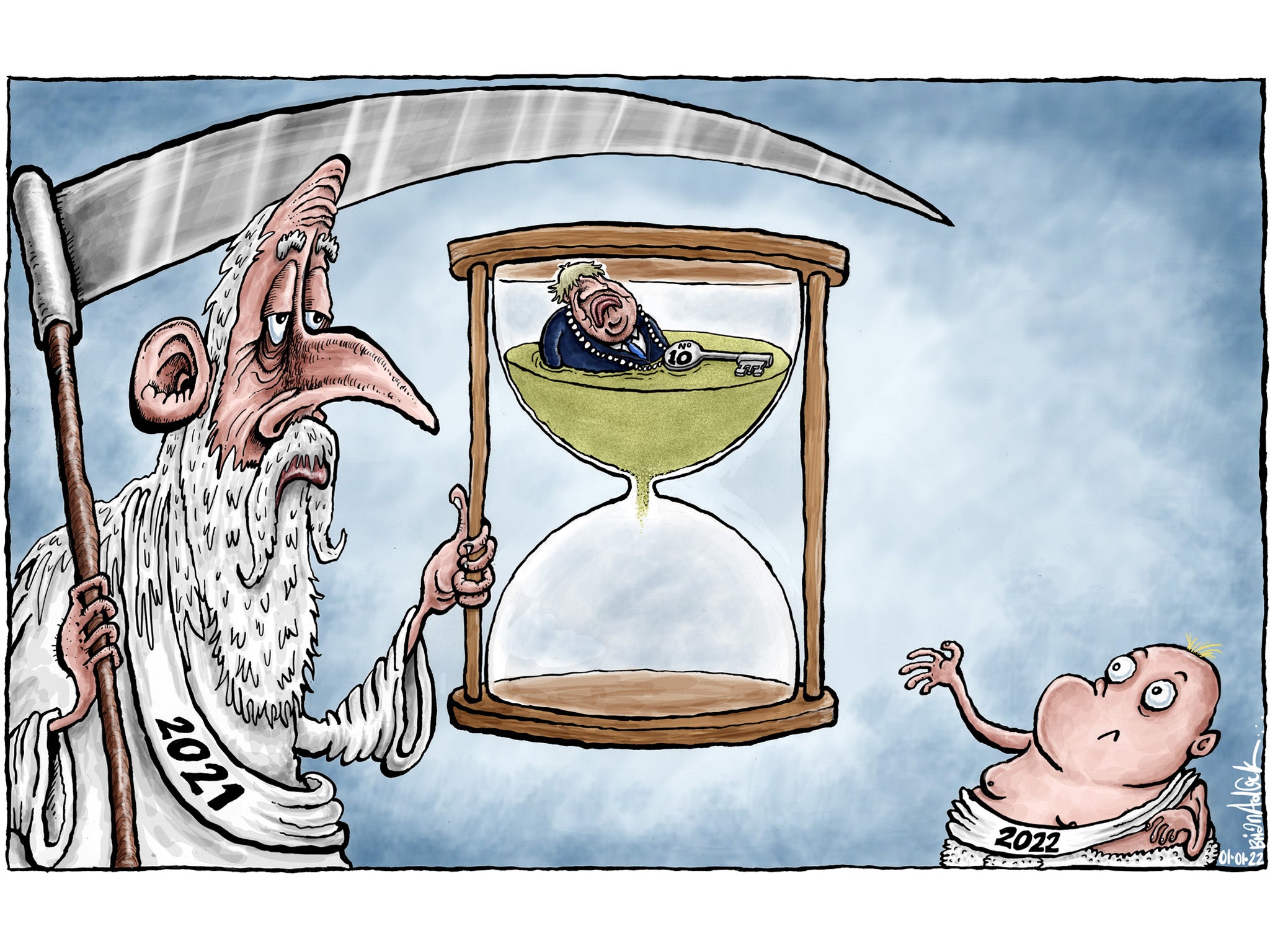After a year of fractious relations, the government has to ensure the UK-EU relationship works better in 2022
Editorial: The public is beginning to notice that Brexit is not living up to Boris Johnson’s billing, which is potentially very bad news for him

The first anniversary of the UK leaving the EU’s single market and customs union deserves more attention than it will receive, as the pandemic continues to dominate the media landscape. However, the relative lack of scrutiny cannot mask some uncomfortable truths for Boris Johnson since Brexit played such an important part in his huge election victory two years ago.
UK imports and exports are down by about 15 per cent, in line with previous forecasts by the Office for Budget Responsibility. The fiscal watchdog believes Brexit will cause a 4 per cent long-term hit to GDP – a reminder that trade deals with the likes of Australia and New Zealand will come nowhere near compensating for the barriers erected with the UK’s biggest trading partners.
With Brexit adding to supply chain problems and labour shortages, the brave new world offered by Mr Johnson at the 2016 referendum is a different planet to today’s Britain. To say that voters were misled is an understatement. Moreover, Brexit is still not “done”. Delayed customs checks for imports from the EU take effect on New Year’s Day, raising the prospect of further disruption, with more new paperwork for animals and plants to follow in July. Mr Johnson is trying to rewrite the agreement under which he accepted a trade border in the Irish Sea after it caused wholly predictable supply problems in Northern Ireland.
The prime minister acknowledged there is unfinished business in his statement marking the anniversary. He said: “The job isn’t finished and we must keep up the momentum. In the year ahead my government will go further and faster to deliver on the promise of Brexit and take advantage of the enormous potential that our new freedoms bring.”
The public is beginning to notice that Brexit is not living up to Mr Johnson’s billing, which is potentially very bad news for him. A Savanta survey for The Independent has found that 57 per cent of people believe he lied more than he told the truth in the Brexit debate, while 26 per cent think the opposite.
Many more people think Brexit has been harmful rather than beneficial on the economy, bureaucracy and even immigration, a trump card in 2016. The doubts extend to Leave voters, only 39 per cent of whom believe Brexit has so far been good for UK interests. Among all voters, the Remain position is judged more accurate on the economy; the unity of the country; disruption to everyday life and the impact on Northern Ireland.
Although the Liberal Democrats claim their stunning by-election victory in Leave-voting North Shropshire shows the country has “moved on” from Brexit, that seems premature. According to Savanta, the country is still split down the middle, with 51 per cent saying they would rejoin the EU if they could vote again, while 49 per cent would not.
While people’s Brexit identities have softened a little over time, they are still stronger than their allegiance to their political party, according to a separate survey by Ipsos Mori. It is, perhaps, no surprise the public have not moved on when the government has shown no inclination to do so. Indeed, Mr Johnson often gives the impression of a leader who wants to reissue his greatest hit, even though the the public now judge it nowhere near as good as it sounded first time around.
Hopefully, the shadow of Covid-19 will finally lift in 2022 and no longer eclipse the impact of Brexit. It might suit the government to avoid such scrutiny; it would prefer to muddy the waters by blaming problems on the pandemic rather than the decision to leave the EU. Now that Labour is clearly back in the game, it should feel emboldened to highlight more forcefully the big flaws in Mr Johnson’s Brexit settlement and spell out how it would put them right. Labour should not be scared off by Mr Johnson’s latest lie – that Keir Starmer would take the UK back into the EU.
After a year of depressingly fractious relations, it falls to all politicians to make the UK-EU relationship work better in 2022. Much will rest on whether Liz Truss plays to the gallery like her abrasive predecessor as Brexit minister, David Frost, or removes the Northern Ireland protocol roadblock to pave the way for a more grown-up partnership to mutual benefit. For the country’s sake, she should opt for the latter.



Join our commenting forum
Join thought-provoking conversations, follow other Independent readers and see their replies
Comments